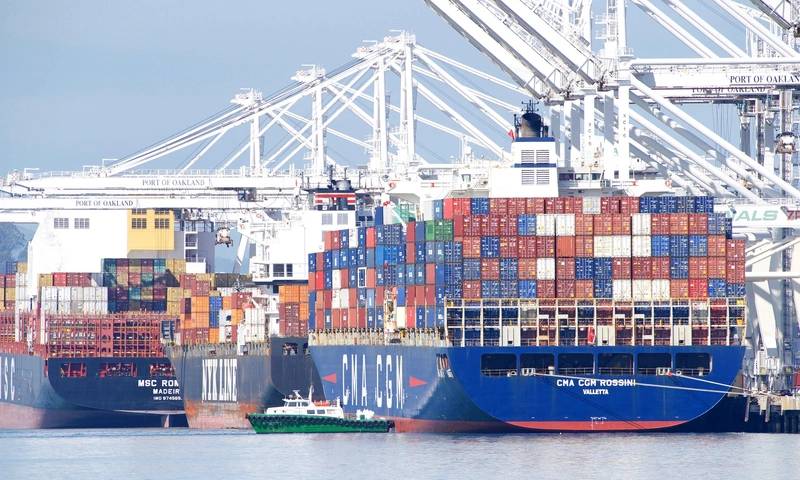White House Lauds Easing of Supply Chain Clogs, Cites Shipping Competition Concerns
The White House on Wednesday lauded improvements in clogged U.S. supply chains, with more goods moving than ever before, but said more work was needed to ensure fair competition in a global shipping sector dominated by three alliances of ocean carriers.
In a new blog, the White House National Economic Council said the Federal Maritime Commission (FMC), an independent agency, was already investigating excessive shipping fees, but should consider using other tools, including challenging carrier alliances if they resulted in unreasonable costs or delays.

It also urged Congress to enact reforms to give the FMC more tools to oversee the global shipping sector, including boosting transparency about fees carriers charge their customers.
President Joe Biden and his administration are racing to address supply chain snarls that emerged in the wake of stronger-than-expected recovery from the COVID-19 pandemic, fueling product shortages and inflation.
Much of the focus has been on U.S. ports, which have been inundated with cargo as a result of seismic shift in consumer spending during the pandemic, from travel and dining to physical goods.
The pandemic also reduced the number of workers needed to keep goods flowing smoothly. Aging truckers retired early, while infection control measures have limited dock and warehouse staffing.
The White House said new data showed continued improvements, with a record number of containers imported at the ports of Los Angeles and Long Beach, California, from January to October, retail inventories up 4% from 2020, and on-the-shelf availability at 90%, just 1% below levels seen before the pandemic.
"The good news is that we're moving more goods than ever before, we're seeing that retail is fully stocked, and we're seeing that the ports are moving these goods more quickly," a senior White House official said. "That means it's going to be a normal holiday season for Americans."
At the same time, the White House said more work was needed to improve exports out of U.S. ports, with rising shipping costs making it more profitable for carriers to load empty containers instead of waiting for loaded containers to get to ports.
"The problem ... raises questions about the fair treatment of American exporters and importers in the shipping industry," it said, noting that nine carriers organized in three alliances now controlled 80% of global shipping, up from just 29% in 2011.
The alliances are legally immune from antitrust laws, but the FMC can challenge them if they result in unreasonable delays, unreasonable increase in transportation costs or "substantially lessen competition," the White House said.
It said the U.S. Justice Department stood ready to help the FMC, adding that the agency needs a bigger budget than its current $30 million.
(Reporting by Andrea Shalal; additional reporting by Lisa Baertlein, Diane Bartz and Jonathan Saul; Editing by Chris Reese and Leslie Adler)
